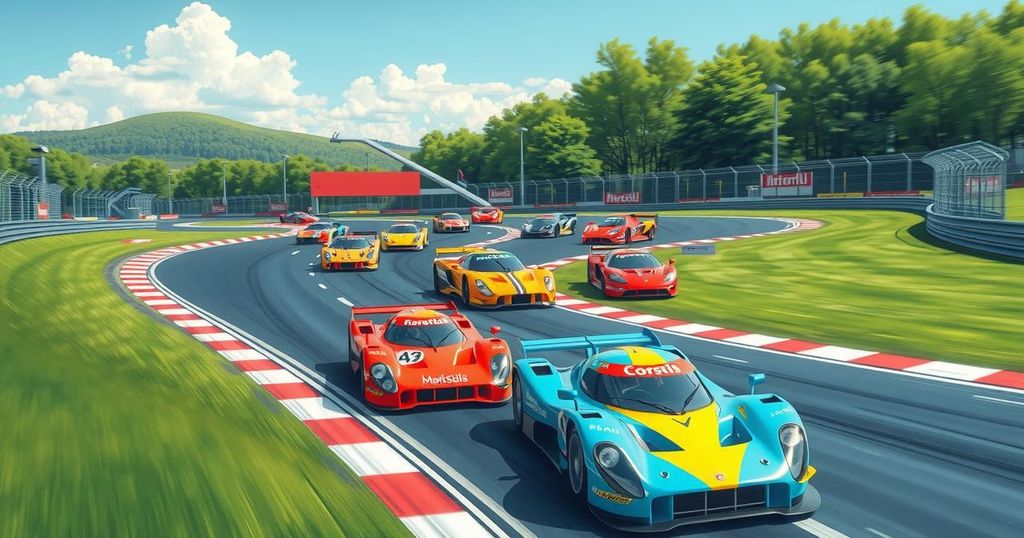South Africa’s Bid to Reintroduce Formula One to the African Continent
South Africa is bidding to host a Formula One Grand Prix, competing between a Cape Town street circuit and Kyalami racetrack. A decision will be made by a committee led by Sports Minister Gayton McKenzie, with support from Lewis Hamilton. Economic considerations and the strategic importance of the race bolster South Africa’s bid, while competition arises from Rwanda and Morocco for hosting rights.
After more than thirty years since Formula One last raced in Africa, South Africa is actively pursuing a bid to host a Grand Prix. The primary contenders for this prestigious opportunity are the street circuit proposed in Cape Town and the historic Kyalami racetrack near Johannesburg. This endeavor seeks to reinstate the continent’s presence in the renowned motorsport event.
The decision regarding which track will host the Grand Prix will be made by a committee appointed by South African Sports Minister Gayton McKenzie. A member of the committee, Mlimandlela Ndamase, indicated that a final decision is expected during the third quarter of the year. Minister McKenzie expressed confidence in the country’s prospects, stating, “The Grand Prix is definitely coming in 2027, no doubt about that,” emphasizing a commitment to bringing the race back.
The last Formula One event held in Africa took place in 1993, just before South Africa’s first democratic elections. The race was won by Alain Prost. The historical significance of F1 in South Africa has been highlighted by various motorsport experts, including Samuel Tickell, who noted that a return would symbolize a meaningful re-engagement with the continent post-apartheid.
Prominent support for South Africa’s bid comes from Lewis Hamilton, a seven-time world champion. Hamilton has argued for greater inclusion of Africa in the F1 calendar, stating, “We can’t be adding races in other locations and continuing to ignore Africa.” Industry expert Samuel Tickell has suggested that it would be essential for Formula One to return to South Africa, having not been there since the end of apartheid.
Economically, hosting an F1 race could be strategically beneficial, even if it is not commercially viable. Simon Chadwick, a professor at Skema Business School, indicated that the financial burdens would not deter countries eager for international exposure. South Africa’s Kyalami racetrack has the potential for hosting, given its Grade 2 certification, while Cape Town’s proposed circuit has also generated enthusiasm, previously hosting a Formula E race in 2023.
As this race opportunity is pursued, South Africa faces competition not only from the Cape Town and Kyalami circuits but also from Rwanda, which has expressed interest in hosting F1. The country’s increasing sports sponsorship visibility and engagements, such as meeting with FIA and Liberty Media, demonstrate its ambitions, although Rwanda’s involvement in regional conflicts may complicate its bid. Meanwhile, Morocco similarly hopes to join the F1 host list. Nonetheless, there is a push from South African officials for the possibility of more than one F1 event on the continent, questioning the perception that Africa can host only a single race.
In summary, South Africa is energetically bidding to bring Formula One back to the continent after a long absence. With two competing tracks, Cape Town and Kyalami, the decision regarding the host will be made by a committee later this year. The backing from figures like Lewis Hamilton and experts reinforces the significance of this bid, while the potential for multiple races in Africa raises interesting prospects for the future of motorsport on the continent. Overall, South Africa’s F1 aspirations reflect a broader desire for inclusivity and recognition in the global sporting arena.
Original Source: www.aljazeera.com




Post Comment